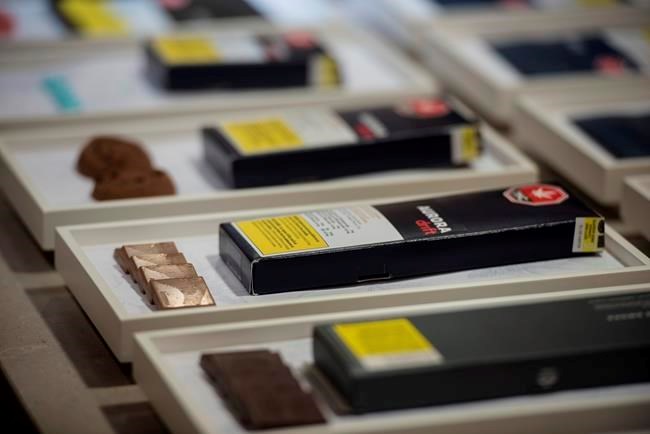TORONTO — Ontario's legal cannabis industry is gaining ground in its fight against the illicit market, but the progress likely won't last long because of COVID-19 lockdowns.
The Ontario Cannabis Store said Thursday that between the start of July and end of September the legal industry controlled slightly more than 36 per cent of the recreational market, up from about 25 per cent the quarter before.
However, the OCS warned the gains may soon dissipate. The pot distributor said the legal industry's market share will decline in the next quarter because of COVID-19 lockdowns that forced pot retailers in Toronto and Peel to operate solely through pickup and delivery.
"While there is still a great distance to travel in moving consumers from the illegal market to the new channels, we are establishing forward momentum, driven by a number of factors such as access, quality and price," OCS president chief executive Thomas Haig wrote in the pot distributor's quarterly report.
Canada's legal cannabis sector has been challenged since its inception in 2018 by the illicit market and gaining market share has been particularly tough during the COVID-19 pandemic.
The health crisis has resulted in delays in cannabis shipments and temporary store closures, making the underground market more attractive for consumers.
The legal industry's 10 per cent gain in market share is its largest ever, and came just 17 days shy of the second anniversary of the legalization of recreational cannabis in Canada, Haig said.
The gain is largely due to the fact that 322 cannabis products saw their prices reduced during the latest quarter, the OCS said.
The average price of dried flower on the OCS's website sank to $6.41 per gram, down from $7.05 a gram in the previous quarter.
Meanwhile, illicit market cannabis reached $8.17 per gram, up from $7.98 earlier in the year.
The OCS said its sales hit $30.5 million while retail stores raked in $173.9 million.
Altogether about 25.8 million grams of cannabis valued at $204.3 million was sold in Ontario in the quarter.
Dried flower accounted for abut 60 per cent of those sales, followed by vapes and pre-rolls at 15 per cent and 12 per cent respectively.
As the quarter ended, the number of cannabis stores hit 183, but by the time of the report's publication, had climbed even further to 280.
This report by The Canadian Press was first published Dec. 17, 2020.
Tara Deschamps, The Canadian Press



